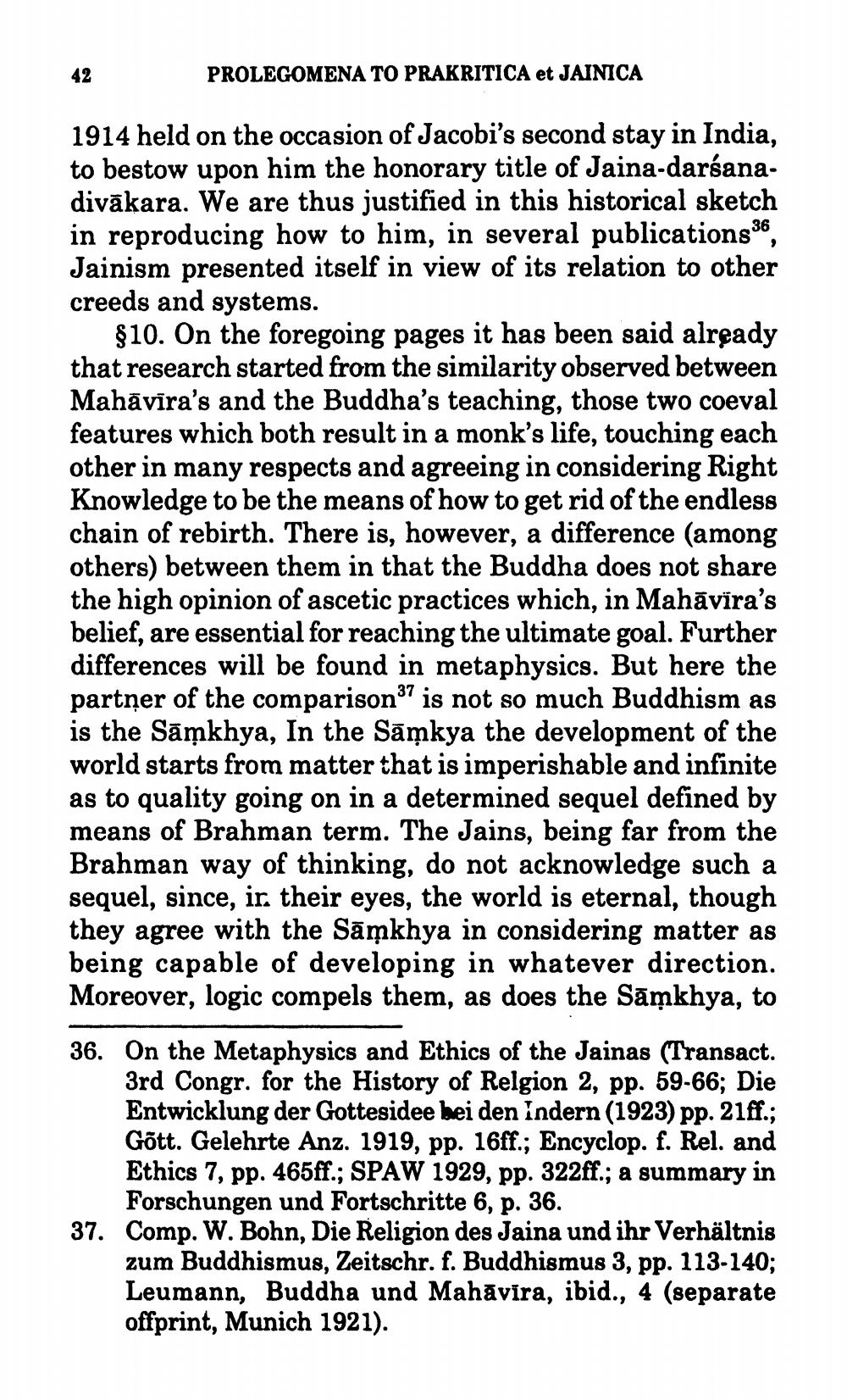________________
42
PROLEGOMENA TO PRAKRITICA et JAINICA
1914 held on the occasion of Jacobi's second stay in India, to bestow upon him the honorary title of Jaina-darśana. divākara. We are thus justified in this historical sketch in reproducing how to him, in several publications 36, Jainism presented itself in view of its relation to other creeds and systems.
$10. On the foregoing pages it has been said already that research started from the similarity observed between Mahāvīra's and the Buddha's teaching, those two coeval features which both result in a monk's life, touching each other in many respects and agreeing in considering Right Knowledge to be the means of how to get rid of the endless chain of rebirth. There is, however, a difference (among others) between them in that the Buddha does not share the high opinion of ascetic practices which, in Mahāvīra's belief, are essential for reaching the ultimate goal. Further differences will be found in metaphysics. But here the partner of the comparison is not so much Buddhism as is the Sāmkhya, In the Sāmkya the development of the world starts from matter that is imperishable and infinite as to quality going on in a determined sequel defined by means of Brahman term. The Jains, being far from the Brahman way of thinking, do not acknowledge such a sequel, since, ir their eyes, the world is eternal, though they agree with the Sāņkhya in considering matter as being capable of developing in whatever direction. Moreover, logic compels them, as does the Sāmkhya, to
36. On the Metaphysics and Ethics of the Jainas (Transact.
3rd Congr. for the History of Relgion 2, pp. 59-66; Die Entwicklung der Gottesidee bei den indern (1923) pp. 21ff.; Gött. Gelehrte Anz. 1919, pp. 16ff.; Encyclop. f. Rel. and Ethics 7, pp. 465ff.; SPAW 1929, pp. 322ff.; a summary in
Forschungen und Fortschritte 6, p. 36. 37. Comp. W. Bohn, Die Religion des Jaina und ihr Verhältnis
zum Buddhismus, Zeitschr. f. Buddhismus 3, pp. 113-140; Leumann, Buddha und Mahāvira, ibid., 4 (separate offprint, Munich 1921).




